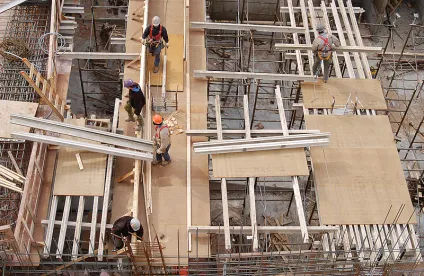The Third District Court of Appeal recently held that completion under the mechanics lien statute requires actual completion of the work of improvement, meaning completion of the entire structure or scheme of improvement as a whole, in Picerne Construction Corp. v. Castellino Villas (Feb. 18, 2016, C071197).* In doing so, the Court resolved an ambiguity developed through case law by acknowledging the abrogation of authority that permitted completion to be found where only “trivial imperfections” to the work of improvement remained.
In Picerne, Picerne, the general contractor, and Castellino Villas, a single purpose LLC owner, entered into an agreement where Picerne would build an apartment complex called Castellino Villas in Elk Grove, California (City) that consisted of eleven apartment buildings, separate garages, a clubhouse, and other facilities. Relevant dates related to the Court’s analysis were: (1) the City issued certificates of occupancy on separate dates in 2006, the last of which was issued on July 25, 2006; (2) a representative of Castellino Villas signed a document entitled “Owner’s Acceptance of Site” on September 8, 2006; and (3) work on the apartment complex continued through October 2008.
When Castellino Villas failed to release withheld retention payments due to Picerne, Picerne recorded a claim of mechanics lien on November 28, 2006. Picerne then filed its complaint to foreclose its lien on December 29, 2006. Pursuant to the parties’ contract, the case was sent to arbitration.
Picerne prevailed in arbitration, obtaining an award of approximately $1.5 million, which was affirmed by the trial court with the addition of prejudgment interest for a verdict of $2,562,308.56. Castellino Villas appealed on grounds that, inter alia, Picerne did not: (1) have a valid mechanics lien because it did not record its claim within ninety days after substantial completion of the project as required by former Civil Code section 3115 (renumbered in 2012 as Section 8412); and (2) timely record its claim of mechanics lien as to nine of the buildings within the project. In support of its claims, Castellino Villas contended that substantial completion of the apartment complex occurred when the City issued the final certificate of occupancy in early August 2006.
The Court of Appeal rejected both of Castellino Villas’ arguments.
First, the Court of Appeal held that Picerne had a valid mechanics lien because it recorded its lien within ninety days of actual completion of the work of improvement, as required by Section 3086 (renumbered and revised in 2012 as Section 8180). In doing so, the Court explained that Castellino Villas’ argument that substantial completion of the project triggers the lien recording period lacked merit for three reasons. Primarily, the Court reasoned that the language of Section 3086 required “actual completion” or one of its enumerated equivalents to conclude that completion had occurred such that the recording period accrued, which did not occur until September 8, 2006—within ninety days of Picerne filing its lien in November 2006. Next, the Court acknowledged that while prior case and statutory law permitted completion to be found when the contractor only had to address “trivial imperfections” in the work of improvement, the revision of Section 3115 from Section 1187 in 1929 abrogated this rule by deleting the “trivial imperfection” language from the statute. Finally, the Court impressed that requiring actual completion is consistent with purpose of the mechanics lien statute, stating: “the mechanics lien statute [i]s a remedial legislation, to be liberally construed for the protection of laborers and material suppliers. … Interpreting completion as actual completion gives lien claimants the maximum amount of time to assert their rights before such rights are cut off.”
Second, the Court concluded that Castellino Villas’ argument that a different deadline for recording a lien claim applied to each of the eleven buildings such that Picerne’s lien was untimely as to nine of the buildings was contradicted by Section 3131 (renumbered in 2012 as Section 8448) and its legislative intent. The Court reasoned that Section 3131 was passed to “expedite the construction of housing” and allow purchasers to obtain marketable title. Because here the apartment complex was constructed under one title, as opposed to eleven separate titles for each building, the Court held that completion of the work as a whole was the applicable date for determining the timeliness of the mechanics lien.
Although interpreting Sections 3115 and 3086, the Court of Appeal’s decision should be applied to determine what constitutes completion for purposes of triggering the recording period under the mechanics lien statute, giving contractors and laborers a clearly-defined date upon which they must enforce their rights. Importantly, the decision reinforces the policy that the mechanics lien statute must be interpreted to inure primarily to the benefit of those who provide labor or services.



 />i
/>i
